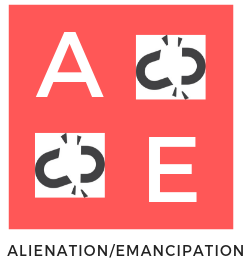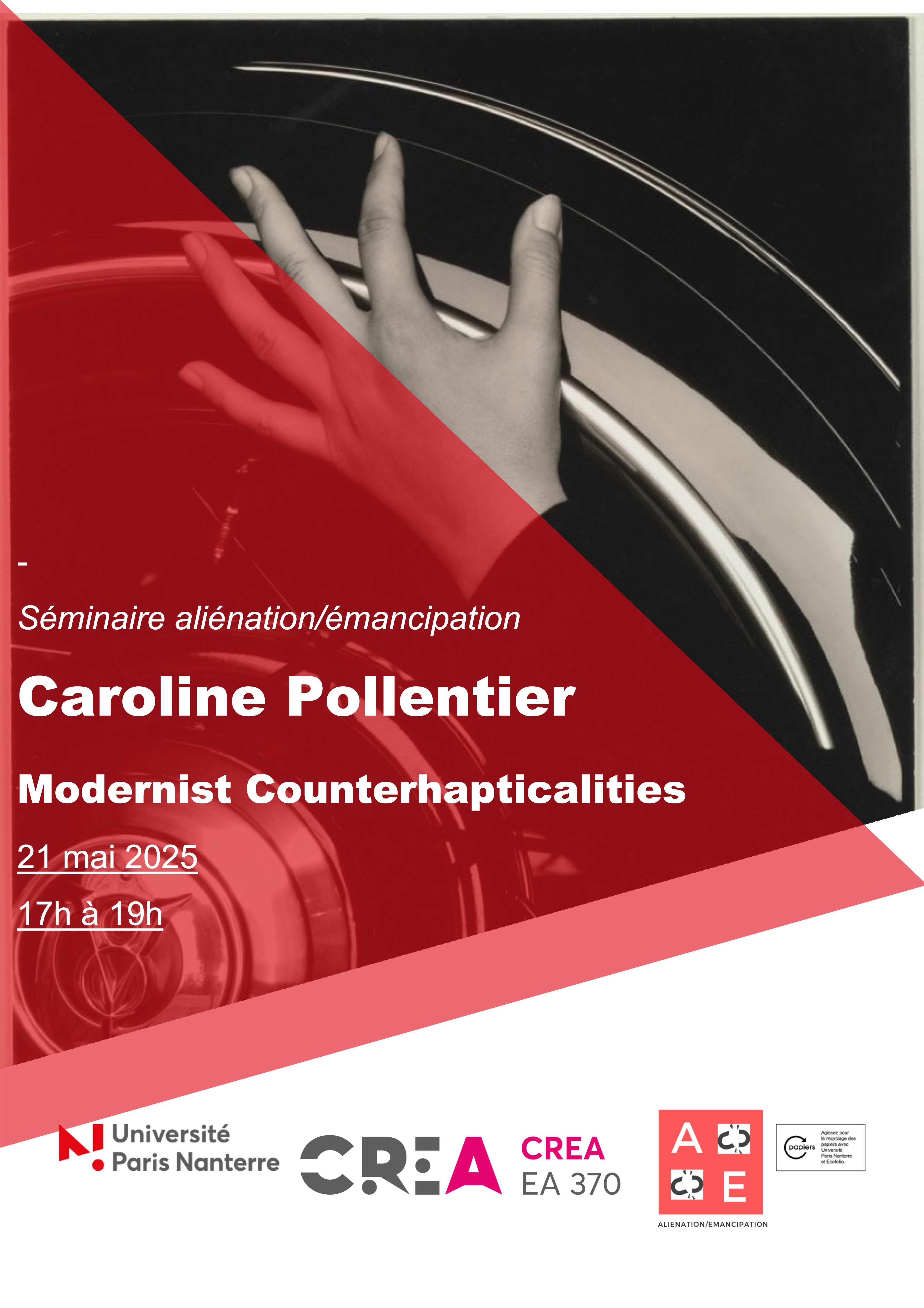Version française / Séminaires
- Recherche - LLS,
Séminaire Aliénation/Émancipation : Caroline Pollentier

Modernist Counterhapticalities
le 21 mai 2025
Presentation
It might not seem obvious to address the sense of touch as a critical sense. In Touching Feeling (2002), Eve Kosofsky Sedgwick significantly reconsidered the place of touch in literary criticism by reorienting hermeneutics towards the phenomenology of affect. Conflating “hapticality” with the “capacity to feel though others” (Moten and Harney, 2013) comes, however, with its own political discontents. In this talk, I propose to define counterhapticality as the ability of literature and the arts to rehearse and resist the interpellations of touch. The feeling subject can articulate a right to touch and not to be touched as a response to social and sexual violence. Beyond the tactile experiences represented in literary texts, these precarious haptic rights may be extended to the politics of representation itself. After reflecting on the political repurposing of haptics in aesthetic discourse, I will first attempt to understand counterhapticality in the wake of Jean-Jacques Lecercle’s concept of “counter-interpellation” (1994) and Nicholas Mirzoeff’s concept of “countervisuality” (2011). Then, I will concentrate on modernism’s vexed relation to the sense of touch, focusing on scenes of invasion and discrimination in José Rizal’s Noli Me Tangere, Mulk Raj Anand’s Untouchable, Jean Rhys’s After Leaving Mr Mckenzie, and Nella Larsen’s Passing. The representation of tactile violence alerts us to the “persistence of realism” in modernist aesthetics (Paul Stasi, 2022) but also suggests modernism’s re-mediation of realism’s claim to tactile reality. In suspending its relation to the real, modernist fiction not only registered but generated haptic trouble.
Bio
Caroline Pollentier is an Associate Professor of English at Université Sorbonne Nouvelle and a Junior Research Fellow at the Institut Universitaire de France (2023-2028). She specialises in modernist studies and has published articles on Virginia Woolf and modernist culture. Since 2022, she has been running a seminar on touch in the arts (TACT: Touch, Arts, Affects). In 2023, she coedited a special issue on literary touch in L’Atelier 15.1. Her current research project focuses on haptic trouble in modernist fiction.
The respondent will be Olivier Hercend (Université Paris Nanterre)
Mis à jour le 09 mai 2025













